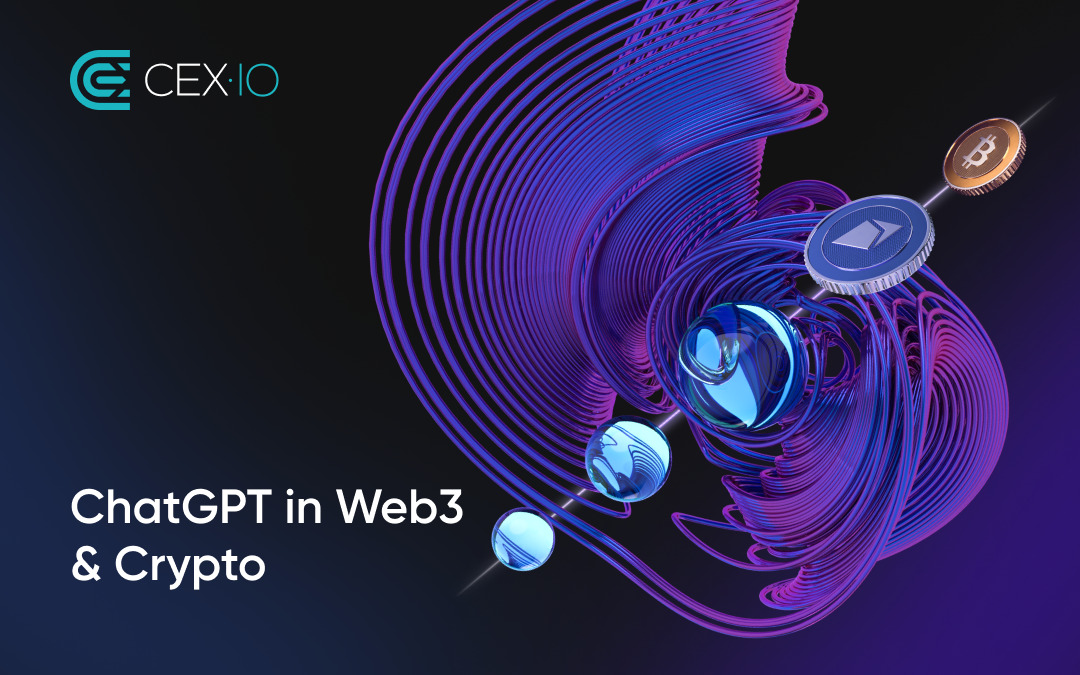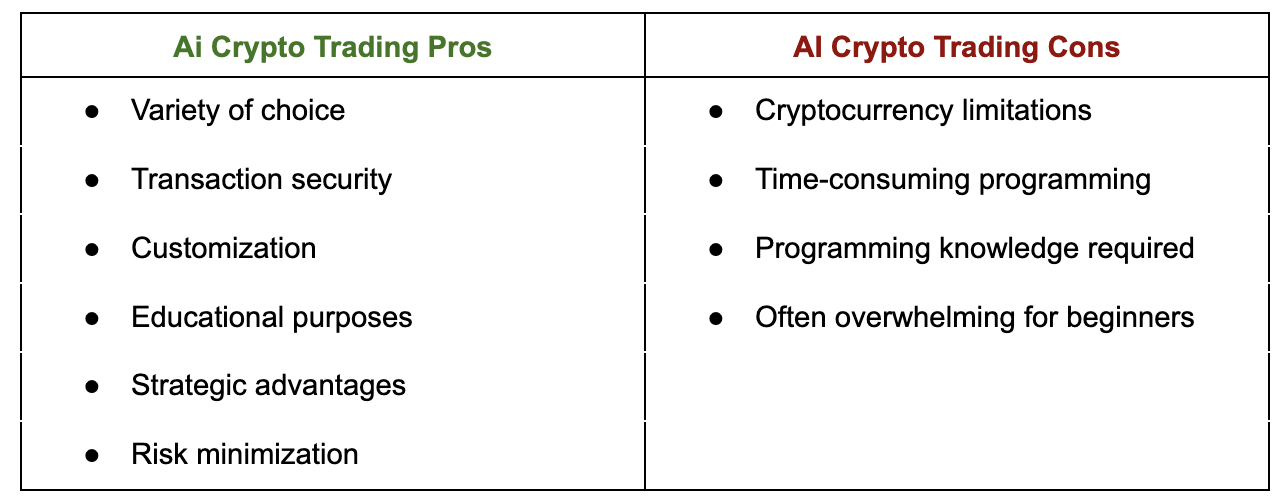“Danger, Will Robinson!” is a famous line from the 1998 sci-fi blockbuster film “Lost in Space,” based on the original 1965 television program. Camp humor aside, the film, and the series that inspired it, raised a legitimate question that became etched in the minds of millions of viewers. This question was: someday, will we really live in a world where artificial intelligence is so advanced, it’s equal to that of humans?
Indeed, AI has fascinated humankind for almost a century, and ChatGPT is the latest in a long line of attempts to equate a machine with the human brain. However, despite becoming a pop culture phenomenon, most of us have yet to scratch the surface of this powerful tool. Join us as we explain ChatGPT, and explore its potential applications in Web3 and crypto.
ChatGPT: What is it & how does it work?
ChatGPT is a “machine learning system developed for natural language traffic.” For those of us who might as well be reading Chinese versus that dense statement, think of it as an online AI tool that can mimic human conversations, and is, therefore, capable of talking with people.
Essentially, you’re looking at an online chat that mimics human language to an almost unbelievable extent. It’s still far from perfect, so don’t worry about ChatGPT taking over the world (just yet, that is). At this stage, you can ask questions and receive answers in real time, such as “What are automated trading strategies?” “How do they work?” etc.
The gist is that this tool is already transforming the nature of user experience, application development, and content creation. And the Web3 space could be just as attractive when it comes to exploring the potential of this AI tool.
ChatGPT & Web3: a tomorrow taking place today
Just as Web3 creates new possibilities in the realm of distributed computing, so too are platforms like ChatGPT influencing how software is experienced and created throughout the tech market. Their combination presents users with a blank canvas of unexplored opportunities. Here are some of them:
- Conversational wallets
- Intelligence NFTs
- Smart contract security testing
- Language-based explorers
Conversational wallets
In the Web3 world, wallets represent the primary entry point for dApp interactions. Thanks to tools such as ChatGPT, it’s now possible to imagine a wallet experience in which a user can execute specific tasks using natural language, request information, or express their intentions to perform a transaction.
Intelligence NFTs
Most crypto enthusiasts argue that enabling a new generation of non-fungible tokens (NFTs) is one of the most evident applications of ChatGPT and similar platforms. In doing so, this new crop of NFTs would incorporate conversational intelligence. Similar to conversational wallets, it is just as effortless to imagine being able to ask questions about the inspiration behind your favorite NFT collection, for example.
Smart contract security testing
Despite the necessity, smart contract audits are generally tedious, expensive, and slow affairs. Additionally, smart contract developers are often not privy to the tests that audit processes perform. On the other hand, imagine being able to perform smart contract audits using a fine-tuned ChatGPT version with nothing more than a straightforward language input.
Language-based blockchain explorers
Besides serving as the core building blocks for human-blockchain interactions, explorers are, essentially, the search experience in Web3. However, the blockchain explorer user experience is mostly designed and intended for domain experts.
Therefore, an explorer powered by a blockchain activity-oriented version of ChatGPT could be revolutionary. Prompts could include anything from, “Are there any interesting patterns in the recent transaction activity?,” to “Are there any large institutions transferring significant funds to X exchange?” The best part? Any regular user (i.e. not a domain expert) could ask such questions.
ChatGPT & Crypto: the million-dollar question, indeed
Using AI for trading was a logical next step in the minds of countless crypto enthusiasts. Automating trades is not a new concept, and neither are trading bots. But AI like ChatGPT brings something new into the fold: no human can keep up with the speed and processing power of these tools.
How could ChatGPT (and other AI tools) potentially help improve your trading experience?
AI crypto trading pros
Variety of choice — users can choose from various platforms and AI trading bots. They can also simultaneously use several, or continue experimenting until they find the right fit for their trading needs.
Transaction security — crypto brokers help numerous traders make trades and watch over their assets. Regardless, the risk of malicious intent or plain human error is always present. At the same time, bots can ensure the trading of your assets on your terms and your terms alone.
Customization — your chosen AI crypto bot likely features customization opportunities, empowering you to tailor it to your personal needs.
Educational purposes — Cryptocurrency is a knowledge well that can sometimes run much too deep for beginners. Becoming overwhelmed with information is common (unless you’ve read CEX.IO University pieces), so receiving custom informational explanations from AI tools like ChatGPT could be helpful.
Strategic advantages — Pulling off trading strategies that require continuous attention is much more straightforward with the help of AI trading bots. As a trader, you can also make informed decisions thanks to these bots’ analyses of trends and algorithms.
Risk minimization — AI may help you select the best times to buy or sell your assets, thereby minimizing the risk of excessive losses. Keeping your funds safe from rapid price drops is crucial in times of market volatility.
AI crypto trading cons
Cryptocurrency limitations — According to some estimates, there are more than 21,000 cryptocurrencies in circulation, meaning users have plenty of choices. However, despite the equally impressive number of AI trading bots available, not all of them are compatible with every available crypto.
Time-consuming programming — It takes time to program your custom bot to perform the way you want it to. The process may become tedious, not to mention having to account for experimentation time (the time it takes you to learn how to manage the bot to avoid errors).
Programming knowledge required — Experience with programming languages is a must if your goal is to create or customize your own AI trading bot. To be fair, it is possible to ask another bot to create the software, but it may contain errors.
Often overwhelming for beginners — AI bots are far more complex when used for actual trading, despite being an effective tool to help beginners for educational purposes. Regardless, if you’re adamant about automating your trades, you can find more info in this blog article.
How could you use ChatGPT for crypto trades?
Please note: ChatGPT is currently only trained on information through the end of 2021.
Turning to ChatGPT for AI crypto trading advice is becoming more common among traders, especially those looking to gain an edge over the competition (which is to say, everyone else). A reasonable mindset, indeed, as this tool not only improves daily, but also uses real-time data to craft its responses.
For example, making knowledgeable and swift decisions before they trade is one of the most common applications of ChatGPT in crypto. There are already examples of crypto experts training this AI-powered tool to inform traders more effectively. These experts are currently using a computer language developed by Trading View, called Pine Script.
The ChatGPT-generated trading bot, although rudimentary, successfully formed helpful trading instructions by using market data about popular cryptocurrencies, including Bitcoin.
Additional ChatGPT applications in crypto
There are countless examples of prompts you could formulate to ask ChatGPT for help with crypto trading. For instance, you could inquire about current investor emotions around BTC, or instruct the tool to provide you with a thorough analysis, such as “Bitcoin prices,” “risk profile,” or even “market capitalization.”
Additionally, you could also ask it to explain various crypto events, concepts, or terms to you. For instance, Twitter users used ChatGPT to write the script code to create an AI trading terminal. This terminal displays real-time info about BTC/USDT (Bitcoin/Tether stablecoins) orders.
Note: Exchange Plus is currently not available in the U.S. Check the list of supported jurisdictions here.
For information purposes only. Not investment or financial advice. Seek professional advice. Digital assets involve risk. Do your own research.

